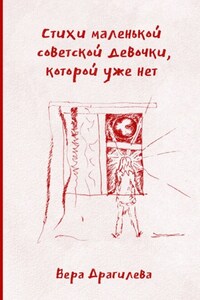As he was leaving the academy on the afternoon of his third day at school in Oakdale, Ben Stone was stopped by Roger Eliot, the captain of the football team. Roger was a big, sturdy chap, singularly grave for a boy of his years; and he could not be called handsome, save when he laughed, which was seldom. Laughter always transformed his features until they became remarkably attractive.
Compared with Ben, however, Roger appeared decidedly comely, for the new boy was painfully plain and uncouth. He was solid and stocky, with thick shoulders and rather big limbs, having a freckled face and reddish hair. He had a somewhat large nose, although this alone would not have been detrimental to his appearance. It was his square jaw, firm-shut mouth, and seemingly sullen manner that had prevented any of the boys of the school from seeking his acquaintance up to this point. Half of his left ear was gone, as if it had been slashed off with some sharp instrument.
Since coming to Oakdale Ben had seemed to shun the boys at the school, seeking to make no acquaintances, and he was somewhat surprised when the captain of the eleven addressed him. Roger, however, was not long in making his purpose clear; he took from his pocket and unfolded a long paper, on which were written many names in two extended columns.
“Your name is Stone, I believe?” he said inquiringly.
“Yes, sir,” answered Ben.
“Well, Stone, as you are one of us, you must be interested in the success of the football team. All the fellows are, you know. We must have a coach this year if we expect to beat Wyndham, and a coach costs money. Everybody is giving something. You see, they have put down against their names the sums they are willing to give. Give us a lift, and make it as generous as possible.”
He extended the subscription paper toward the stocky boy, who, however, made no move to take it.
Several of the boys, some of them in football clothes, for there was to be practice immediately after school, had paused in a little group a short distance from the academy steps and were watching to note the result of Roger’s appeal to the new scholar.
Ben saw them and knew why they were waiting there. A slow flush overspread his face, and a look of mingled shame and defiance filled his brownish eyes. Involuntarily he glanced down at his homespun clothes and thick boots. In every way he was the poorest-dressed boy in the school.
“You’ll have to excuse me,” he said, in a low tone, without looking up. “I can’t give anything.”
Roger Eliot showed surprise and disappointment, but he did not immediately give over the effort.
“Why, of course you’ll give something,” he declared, as if there could be no doubt on that point. “Every one does. Every one I’ve asked so far has; if you refuse, you’ll be the first. Of course, if you can’t afford to give much – ”
“I can’t afford to give a cent,” interrupted Ben grimly, almost repellantly.
Roger slowly refolded the paper, looking the other over closely. He took note of the fellow’s well-worn clothes and poverty-touched appearance, and with dawning comprehension he began to understand the meaning of the flush on Ben’s cheeks. Instead of being offended, he found himself sorry for the new boy.
“Oh, all right!” he said, in a manner that surprised and relieved Stone. “You know your own business, and I’m sure you’d like to give something.”
These words, together with Eliot’s almost friendly way, broke down the barrier of resentment which had risen unbidden in the heart of the stocky lad, who suddenly exclaimed:
“Indeed I would! I’m powerful sorry I can’t. Perhaps – by an’ by – if I find I’m going to get through all right – perhaps I’ll be able to give something. I will if I can, I promise you that.”
“Well, now, that’s the right stuff,” nodded Roger heartily. “I like that. Perhaps you can help us out in another way. You’re built for a good line man, and we may be able to make use of you. All the candidates are coming out to-day. Do you play?”
“I have – a little,” answered Ben; “but that was some time ago. I don’t know much about the game, and I don’t believe I’d be any good now. I’m all out of practice.”
“Never you mind that,” said the captain of the team. “Lots of the fellows who are coming out for practice have never played at all, and don’t know anything about it. We need a good lot of material for the coach to work up and weed out when we get him, so you just come along over to the field.”
Almost before Ben realized what was happening, Roger had him by the arm and was marching him off. They joined the others, and Roger introduced him to “Chipper” Cooper, Sile Crane, Billy Piper, and the rest. He noticed in particular the three named, as each was characteristic in his appearance to a distinct degree.
Cooper was a jolly chap, with mischievous eyes and a crooked nose. He had the habit of propounding ancient conundrums and cracking stale jokes. Crane was a long, lank, awkward country boy, who spoke ungrammatically, in a drawling, nasal voice. Piper, who was addressed as “Sleuth” by his companions, was a washed-out, colorless fellow, having an affected manner of keenness and sagacity, which were qualities he did not seem to possess to any great degree.








